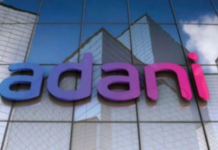New Delhi–The Supreme Court on Tuesday upheld the Competition Commission of India order, which dismissed complaints alleging cartelisation and anti-competitive practices by cab aggregators Uber and Ola.
A bench comprising Justices R.F. Nariman, Krishna Murari and K.M. Joseph said: “Coming now to the merits, we have already set out the concurrent findings of fact of the CCI and the NCLAT, wherein it has been found that Ola and Uber do not facilitate cartelisation or anti-competitive practices between drivers, who are independent individuals.” In this backdrop, the bench said it see no reason to interfere with these findings. “Resultantly, the appeal is dismissed”, said the top court.
The CCI had noted that a rider books his/her ride at any given time which is accepted by an anonymous driver available in the area, and there is no opportunity for such driver to coordinate its action with other drivers. “This cannot be termed as a cartel activity/conduct through Ola/Uber’s platform”, CCI had noted.
However, the top court set aside the NCLAT finding that Samir Agrawal, informant in this case, had no locus standi to move the CCI. “when the CCI performs inquisitorial, as opposed to adjudicatory functions, the doors of approaching the CCI and the appellate authority, i.e., the NCLAT, must be kept wide open in public interest, so as to subserve the high public purpose of the Act”, noted the top court.
In 2018, Agrawal sought CCI to initiate inquiry Ola and Uber alleging that they entered into price-fixing agreements in contravention of section 3(1) read with section 3(3)(a) of the Act.
According to Agrawal, Uber and Ola calculate trip’s fare by an algorithm based on many factors. He alleged that due to algorithmic pricing, neither are riders able to negotiate fares with individual drivers for rides that are booked through the apps, nor are the drivers able to offer any discounts. “Thus, the pricing algorithm takes away the freedom of riders and drivers to choose the best price on the basis of competition, as both have to accept the price set by the pricing algorithm”, Agrawal submitted.
The CCI had noted that the algorithmically determined pricing for each rider and each trip tends to be different owing to the interplay of large data sets. “Such pricing does not appear to be similar to the ‘hub and spoke’ arrangement as understood in the traditional competition parlance”, noted the CCI, declining to entertain the plea. This CCI order was challenged in NCLAT, which dismissed the appeal in May this year. Following which the informant moved the top court. (IANS)







